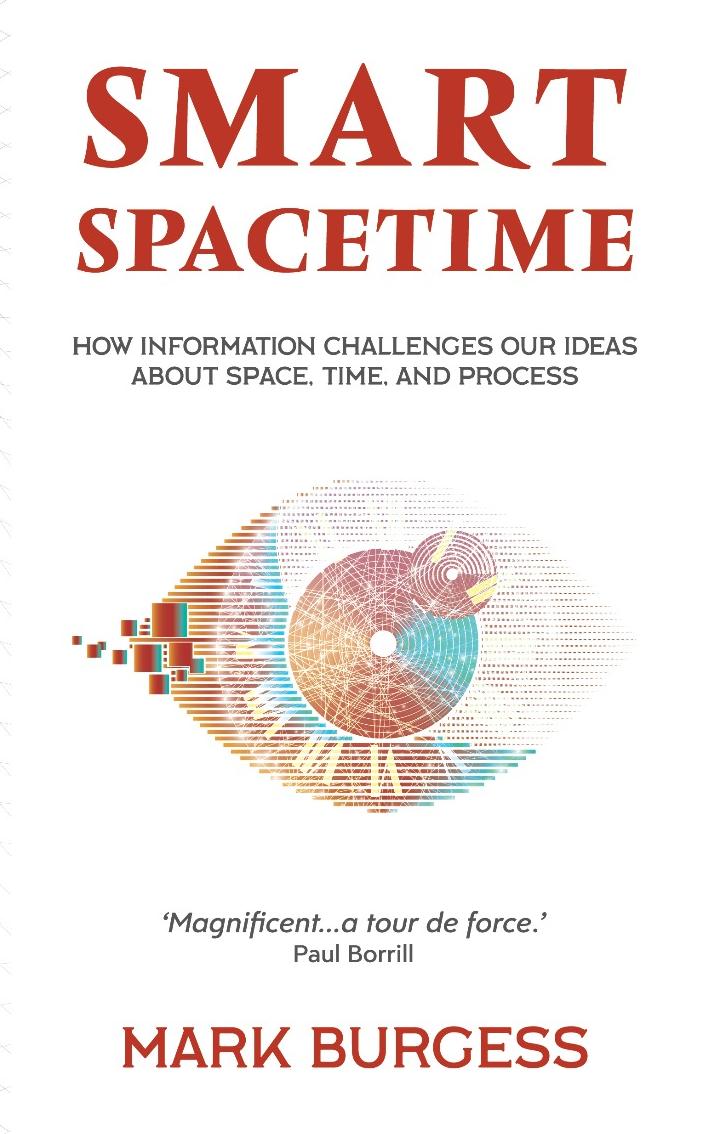Research interests
I don't maintain these pages very actively, so they are quite dated.
I started life (if you call this living) as a theoretical physicist, working on Kaluza Klein theories, then geometrical quantum field theory, topological quantum field theory, finite temperature field theory, anyons, Chern-Simon theory etc. Then I flipped to study computers as dynamical systems, and dabbled in Machine Learning, control systems, etc. I now work within mainly computing disciplines. I like exploring elegant or creative ideas that one strives to work into a scientific discipline -- especially those that really describe stuff, rather than idealize systems beyond recognition. Now that I have to earn money for a living (ChiTek-i), I can only squeeze writing in between gaps of working on more pedrestrian stuff.
Recent highlights:
The work with Robin Dunbar on the sizes of human social interactions is particularly interesting to me, as it flows from the Promise Theory work and my application to trust.
A quantitative model of trust as a predictor of social group sizes and its implications for technology -- what are the cognitive limits on technological usage, as evidenced by group sizes originating from our evolutionary past?
And the data study it's based on:
Causal evidence for social group sizes from Wikipedia editing data
Overview
The broad paintbrush view of my work is about: how to describe dynamical systems in a useful way, on all scales. Here's how is got started.
- Researchgate profile
- Github profiles
- Promise Theory Channel
- System patterns and resilience
- Semantic spacetimes - smart spaces, smart cities, knowledge representation, and artificial reasoning.
- Trust in a network society (NLnet project)
Note, if you are looking for publications I vowed to stop the game of publishing in journals after reaching the lofty title of Professor and I casually tossed away credability to leave the University, largely due to my experiences with the cliques and corrupt privilege rings in academia, journals, and its institutions. I now try to write less and seek my own non-anonymous peer review and publish only on the Arxiv or researchgate. I am against all kinds of academic snobbery,
Ongoing and unfinished projects
Since stumbling onto Promise Theory as a way to talk about agent based scaling and semantics, I've not been able to get far away from Promise Theory. I spend a lot of time applying Promise Theory to practical cases and technologies. I've written about the presumed route to `intelligence' at the system level in terms of these principles (see my popular books In Search of Certainty and Smart Spacetime).
Further developments of promise theory:
- Promise theory of money
- Authority (I): A Promise Theoretic Formalization (also at SocArxiv)
- Notes on Trust As A Causal Basis For Social Science
- Virtual motion (Motion of the Third Kind)
The main theme of my work, since 1998 has been the understanding and scaling of human-computer systems, in particular the idea of self-maintaining, `smart' functional infrastructure, using embedded information technology. Since 2007, I have been working on two main subjects: the formalization of the concepts and applications of Promise Theory (largely with Jan Bergstra) and the question of Knowledge Management for IT infrasructure, particularly semantic networks. This is in continuation of previous work on the dynamics and semantics of information infrastructure for pervasive computing or "Internet of Things".
- Some contributions to IT Infrastructure and IT-Operations
- Some contributions to machine learning, anomaly detection, and MONITORING
- Promise Theory
- Knowledge Representation
- Internet of Things
- Workspaces
Data pipeline design (unfinished project)
- Introduction to Aljabr: Pipelines and Workflows
- Storytelling in the Dataverse
- #1: Introduction to Aljabr: Pipelines and Workflows
- #2: The point of departure is not to return
- #3: Desired outcomes
- #4: Race to the finish: cache or check?
- #5: Configuring on all cylinders
- #6: Steering the cloud simply and predictably
- #7: Data in, story out
- #8: Clutching at pipelines
- #9: Data, data, everywhere…
- #10: Swallow the spider to catch the fly
- #11: Say Cheese!
- 12# One step forwards, two steps backwards
- 13# The 4 R’s
- 14# From wireframe to fully rendered
- 15# Beyond data pipelines
Paper on Koaljr
Business driven IT
In the overlap between Promises and Knowledge, I got interested in BDIM "Business Driven IT Management", or what it means to make IT business relevant (thanks for Claudio Bartolini). Following talks by Claudio, Jacques Sauve and John Wilkes in 2006, I drafted this sketch (DOI: 10.13140/RG.2.1.1080.0800) was used as an outline of a keynote held at NOMS in Brasil in 2008, which was the start of using Promise Theory to describe this business alignment, and later DevOps.
"There is nothing more difficult to take in hand, more perilous to conduct or more uncertain of its success than to take the lead in the introduction of a new order of things, because the innnovator has for enemies all those who have done well under the old scheme and lukewarm defenders in those who may do well under the new..."
(Machiavelli, The Prince)
"Perhaps the greatest discovery of all this research is that we no longer can separate basic from applied science The disciplines are connected in ways they have never been before..."
(Vice President Al Gore)
"There is no use in looking to scientific `papers', for they do not merely conceal but actively misrepresent the reasoning which goes into the work they describe."
(Sir Peter Medawar)





